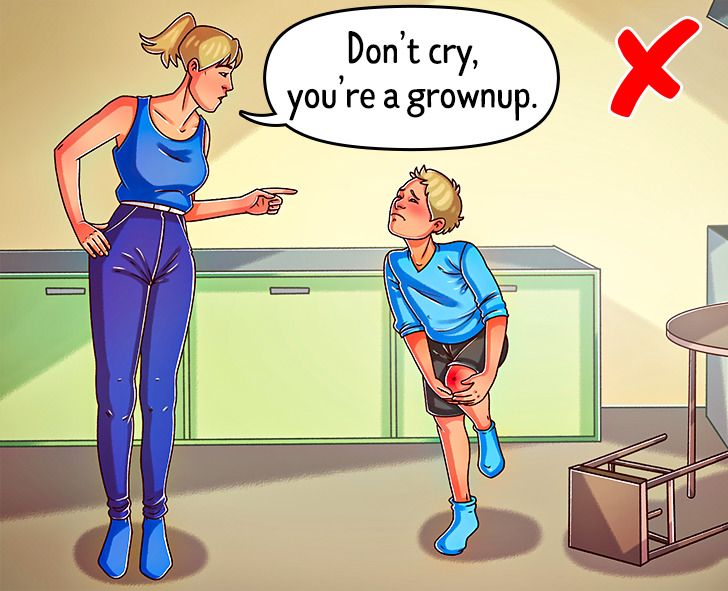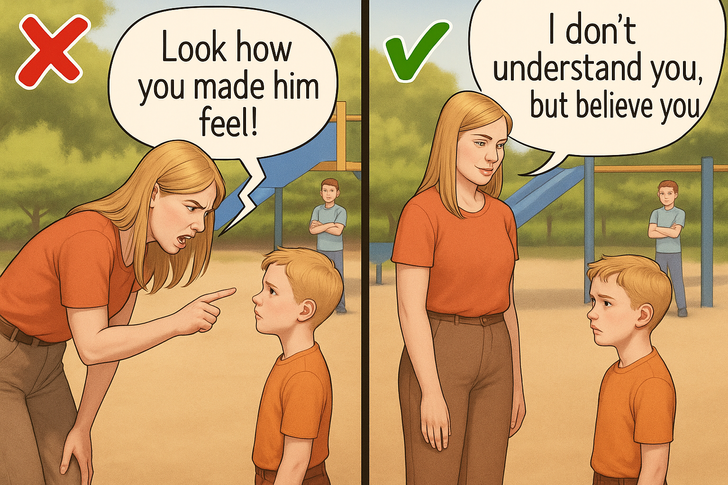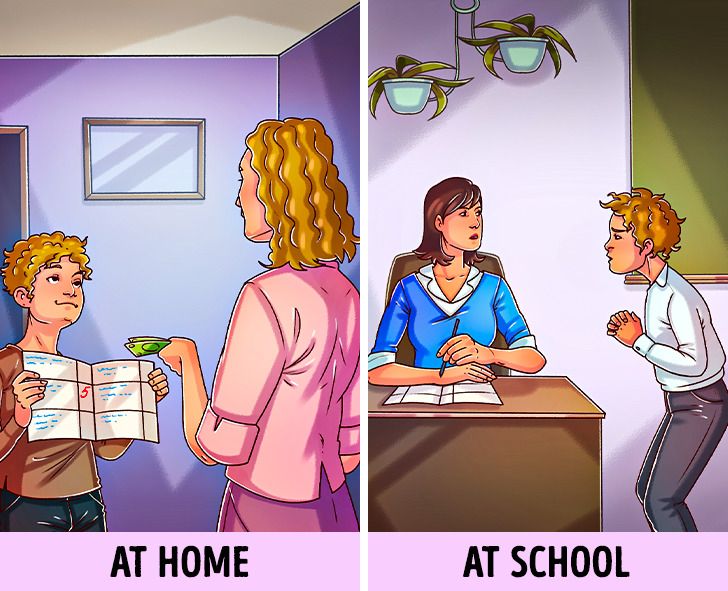16 Stories About People Who Suddenly Got Really Lucky


Raising financially responsible adults starts much earlier than most parents realize. The habits children form at home—especially around spending, saving, and money mindset—often follow them well into adulthood. While every parent wants the best for their child, certain well-intentioned actions can unintentionally lead to poor financial habits later in life. In this article, we’ll explore 13 common ways parents accidentally raise adults who struggle with money—and how small changes today can build a foundation of strong financial literacy for tomorrow.

The notion that an individual must hold the same occupation for their lifetime is a fast-fading memory. Numerous current jobs didn’t exist a few years ago, and some long-standing ones already don’t.
A strict parent has unrealistically high expectations from themselves—and as the child matures, they begin to look for the same. The artwork the child produces is never satisfactory, the bed is never made enough, and homework is never “attacked” in the right manner. Criticism is always present, but the child is never given the facilities or space to correct. These children over time either become perfectionists themselves—constantly seeking approval—or become low-esteem and doubting individuals. Neither is a good foundation for a healthy or secure lifestyle or career advancement.

One of the hardest things—for kids and adults alike—is learning to wait before caving in to purchasing something they really want. It’s hard not to resist spending money on a new toy or trendy clothing, no matter how old we become. That’s why it is important not to cave in right away whenever a child demands something, even if they whine that “everyone else has it.”
Rather, prompt them to wait—maybe for a few weeks or even months. Preferably, tell them to use their own money for the purchase. More often than not, this by itself will dampen their enthusiasm for the item. And if they’re still interested and decide to buy it on their own, don’t jump in at the very last minute and pay for it. Doing that can rob waiting of its worth and undermine your authority. Teenagers will be more likely to value and take care of what they’ve bought with their own money.
The world is constantly changing, and what worked in the past to earn or save money may not work today. With an uncertain future economy, it is impossible to determine which skills will be required. That is why it is essential to teach children how to be adaptive and flexible, rather than saving money.

Sometimes, adults unconsciously teach children to deny or repress their feelings. They might say to them that bruises don’t hurt, that it’s overreacting to be angry with a child who punched you, or that it’s not necessary to feel sad no matter what the reason is. Even though these responses typically come from a desire to have well-behaved children, they can be self-defeating. Instead of teaching children to manage their feelings, parents may invalidate them. But in modern times, perhaps one of the most valuable attributes anyone can acquire is being capable of comprehending, expressing, and managing feelings and needs.

Each child needs to have faith that, no matter what, their parents will be sensible and reasonable and won’t accept the word of a teacher, a school administrator, or a neighbor without question. By permitting children to defend themselves before an audience, especially one of authority figures, they send an important message: your voice is heard. When a child is held accountable for his or her actions, he or she will be more likely to develop good self-esteem and a good sense of responsibility.
It’s completely natural for children to witness their parents being sometimes sad or stressed at times—that’s life. But if sadness or fighting is a common occurrence, it can be exhausting. The family dynamics shift, and the child may feel they have to step in as the emotional support system. At times, they start believing adulthood is all about strife and disappointment, and they get nervous about becoming an adult. But to become a career and thrive as an adult requires emotional maturity and self-assurance.

Every generation looks up to its own set of heroes—people young minds aspire to imitate. In recent years, the personal success stories of wealthy and influential individuals have become especially popular. At first glance, it might seem like all you need to do is follow their path to find happiness and success. But if it were really that simple, everyone who read their biographies would already be financially secure. The truth is, success is rarely one-size-fits-all.
Good communication is probably the most valuable skill a person can have in any professional field. It’s not just about knowing how to be friends—it’s also about knowing how to end arguments with respect and in a positive way. People will always disagree, and knowing how to convey feelings without causing more conflict is important. The sooner that a child knows these things, the less complicated their interactions later on in life, both personally and professionally, will be.
It’s worth noting, also, that school and real learning are not necessarily the same. While textbooks and classroom assignments may be dull, so too do trips to the museum, the theater, or an art museum present interesting paths to learning—and are great places to spend family time together as they expand the knowledge of a child.

Today, social networks serve the same purpose for kids as neighborhoods and playgrounds once did for previous generations—they’re places to connect, learn, and share. Through these platforms, children can quickly pick up valuable skills, especially with the help of apps and tools integrated into social media. While it’s important for parents to teach online safety, completely denying children access to this digital world can be more harmful than protective.

The debate continues over whether to pay kids for good grades or not. But let’s reverse the situation for a moment: imagine you’re a contractor, constantly paying for a service—while your kid becomes the service provider, delivering results for rewards in exchange. It starts to feel more like a transaction than a healthy learning process, doesn’t it?
While sports are often praised for teaching discipline and building character, the world of competitive athletics can pose serious risks to a child’s physical and mental well-being. When the pressure to win becomes too intense—whether from coaches, parents, or peers—it can create an environment where only the top performers matter, and everyone else feels left behind. For a young child, this sense of unfairness can quickly lead to low self-esteem. And if they’re ever forced to stop competing, many are left unsure of who they are or what else they’re capable of.
Uncover the clever tactics marketers use to influence your choices and shape your spending without you even realizing it.











